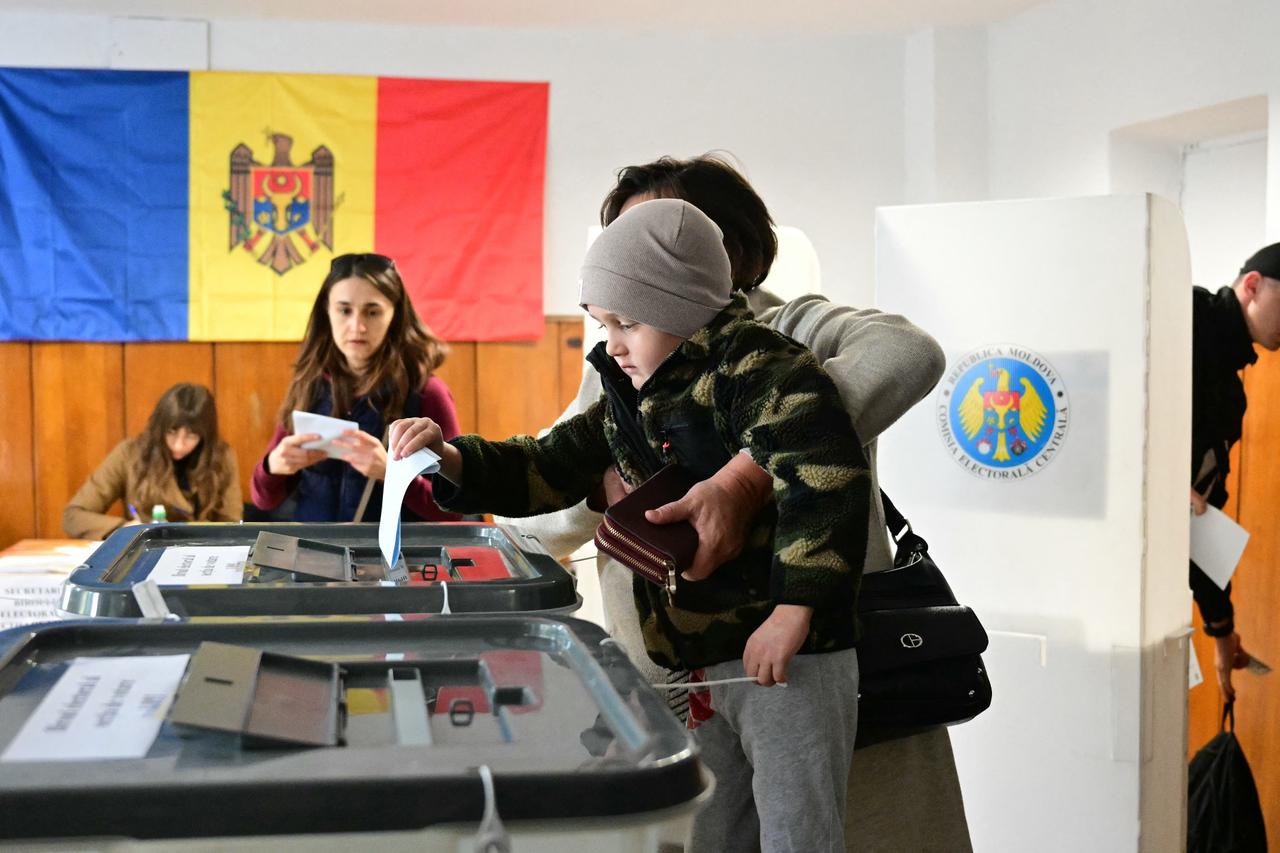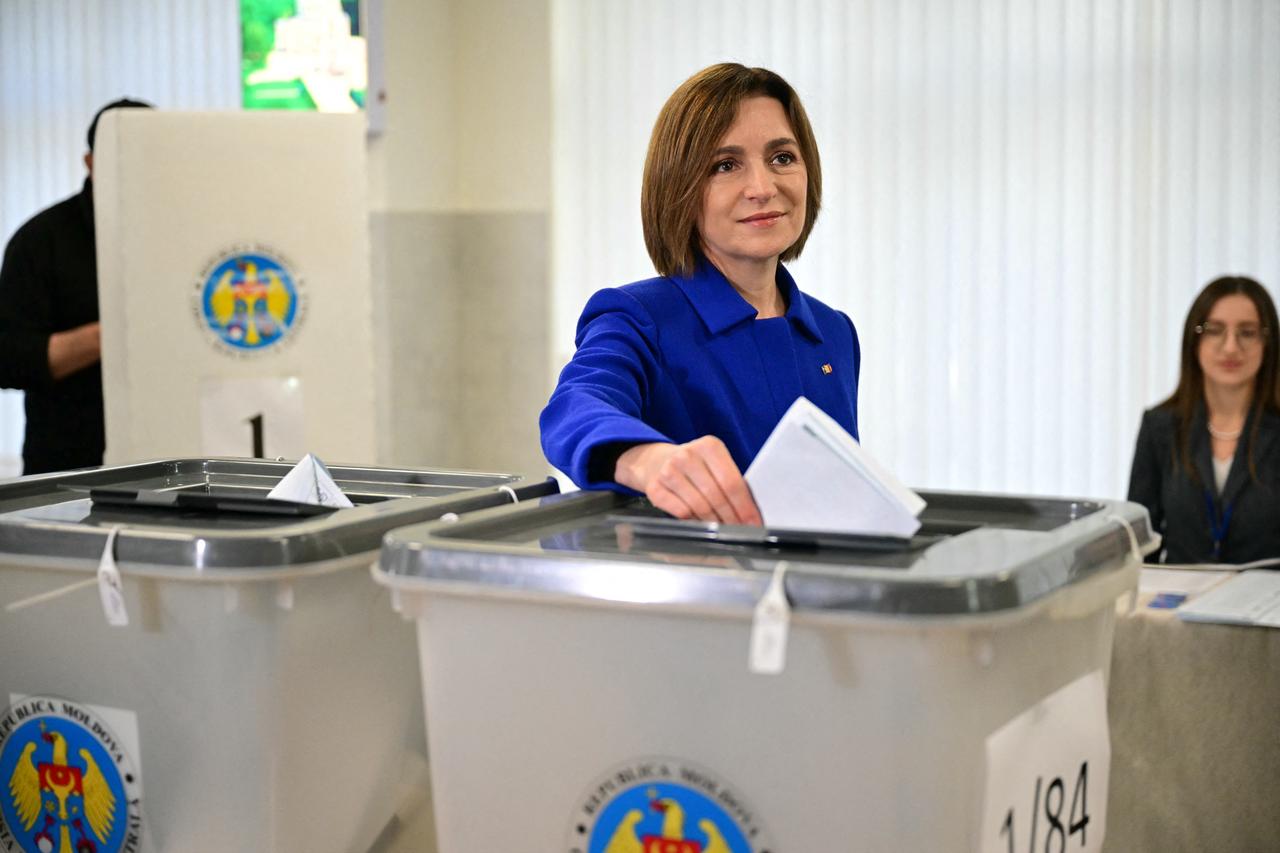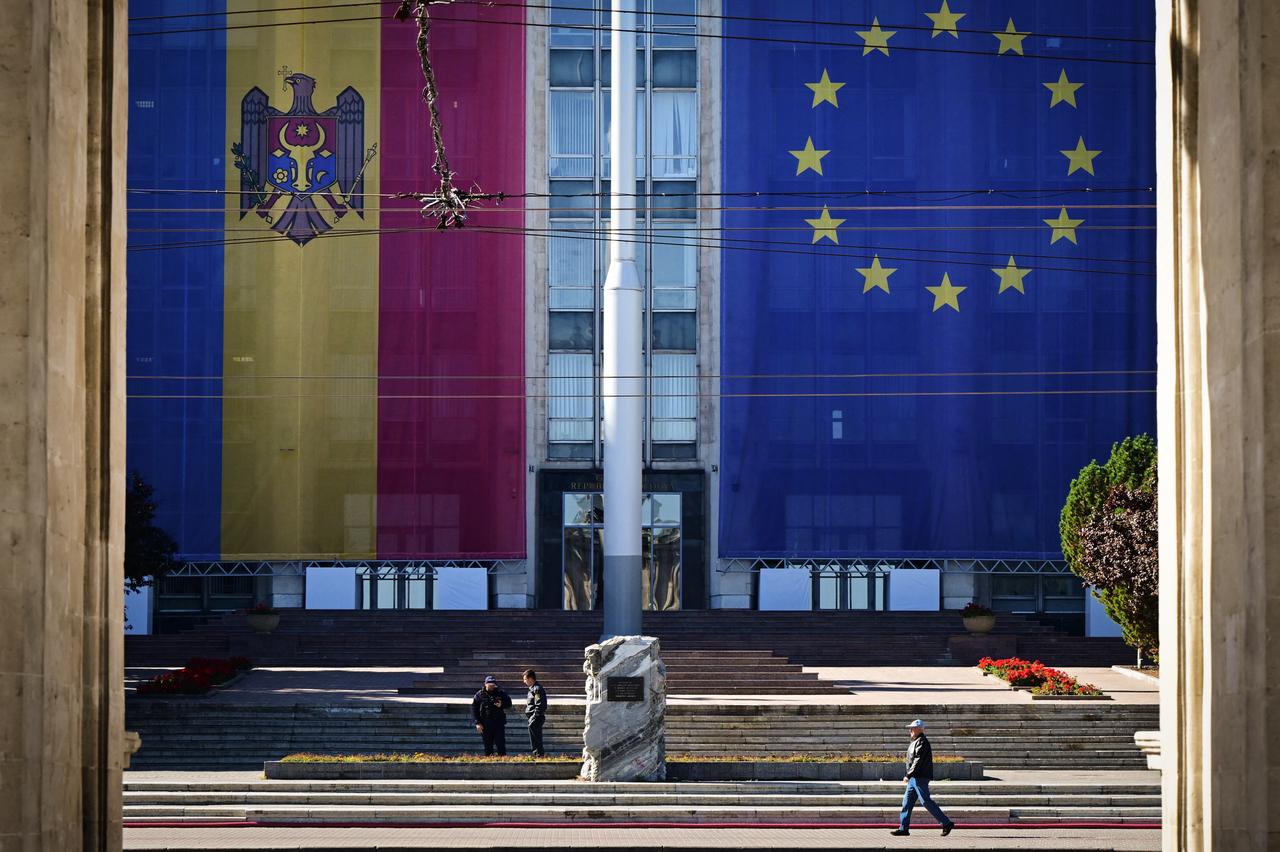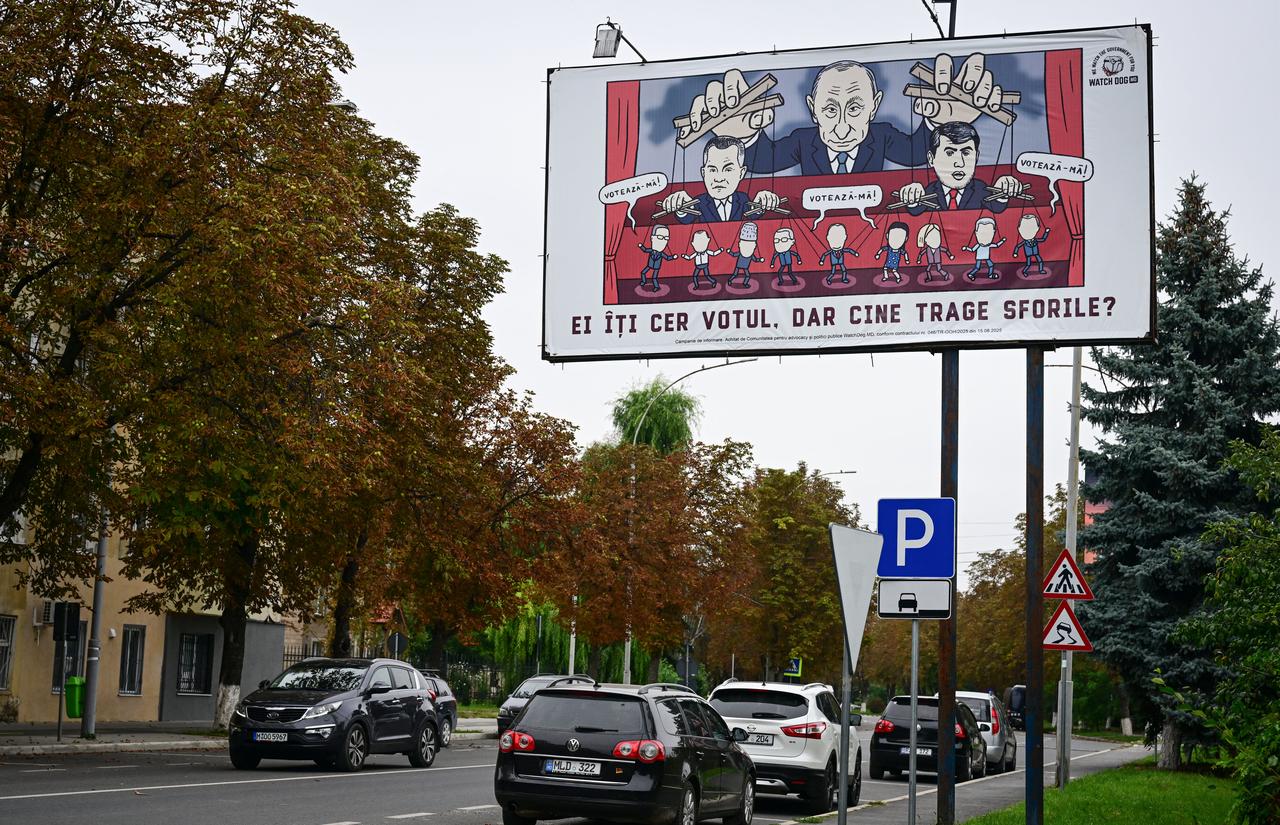
Moldovans headed to the polls on Sunday in a parliamentary election seen as decisive not only for the balance of power in parliament but also for the country’s bid to join the European Union.
Voting began at 2,274 polling stations at 7:00 a.m. local time (0400 GMT), including 1,973 inside Moldova, and will close at 9:00 p.m. (1800 GMT), according to the Central Election Commission (CEC).
“Over 3.6 million ballots were printed for these elections, of which 865,000 were distributed to polling stations outside the country,” the CEC said in a statement.
The CEC said that over 3,400 observers, including 912 international monitors, are overseeing the election.

President Maia Sandu’s ruling Party of Action and Solidarity (PAS), which has held a majority since 2021, is challenged by several alliances of mostly pro-Russian opposition parties.
Among them are the Patriotic bloc, led by former President Igor Dodon, and the Alternative bloc, headed by Chisinau Mayor Ion Ceban and former presidential candidate Alexandr Stoianoglo.
Sandu called the vote the “most consequential” since Moldova’s independence from the Soviet Union in 1991.
In an address to the European Parliament earlier this month, she said the outcome would shape Moldova’s geopolitical path.
PAS has led the country closer to Brussels, securing EU candidate status alongside Ukraine in 2022 and opening accession talks in June 2024. A referendum in October that year narrowly enshrined EU membership into Moldova’s constitution.

The campaign has been overshadowed by accusations of Russian interference. Sandu warned in July that Moscow was “investing in multiple political vehicles” to influence parliament.
Russia denied the allegations, accusing Moldovan authorities of dividing citizens by limiting polling stations in Russia while expanding them across Europe.
Moscow also accused the EU and NATO of plotting to “occupy Moldova” and intimidate the breakaway region of Transnistria, controlled by pro-Russian separatists since the early 1990s.
Moldova has long been divided over whether to pursue closer ties with Brussels or preserve Soviet-era relations with Moscow.
“I want higher wages and pensions … I want things to continue as they were during the Russian times,” said Vasile, a 51-year-old locksmith and welder, who only gave his first name, speaking to Agence France-Presse (AFP) at a Chisinau polling station.
Another voter, Paulina Bojoga, 68, said she wanted Moldova “to catch up with European countries because Europe has everything we need.”
“The situation is on a knife-edge,” she said, describing her hopes after returning to Moldova following years in Italy.

After casting her ballot, Sandu again warned of “massive interference of Russia,” telling reporters that Moldova was “in danger.”
“If Moldovans will not mobilize enough and if Russia’s interference will significantly impact our elections, then Moldova might lose everything it has won, and this could be a significant risk also for other countries like Ukraine,” she said outside a Chisinau polling station.
Opposition leaders have pushed back. “It is the day when the people are not afraid, but others are afraid of the people … We choose a country where people’s fear disappears. We choose a normal life for citizens,” Dodon wrote Sunday on Telegram.
He told AFP earlier this week that if elected, he would continue talks with the EU but also re-establish relations with Russia.
Authorities have accused Moscow of spending hundreds of millions of dollars in “dirty money” to influence the campaign.
Prosecutors carried out hundreds of searches tied to alleged electoral corruption and “destabilization attempts,” with dozens of people arrested.
Foreign interference and unrest are “the most significant risks,” said Igor Botan, head of the Moldovan think tank Adept.
Turnout is expected to be decisive—particularly among the large diaspora, which leans pro-EU, and in Transnistria, which is largely pro-Russian. Some 20 political parties and independent candidates are competing for the 101 parliamentary seats.
“The result is very difficult to predict,” Botan said. “Post-election negotiations to ally are highly likely, and here too, things are unclear.”